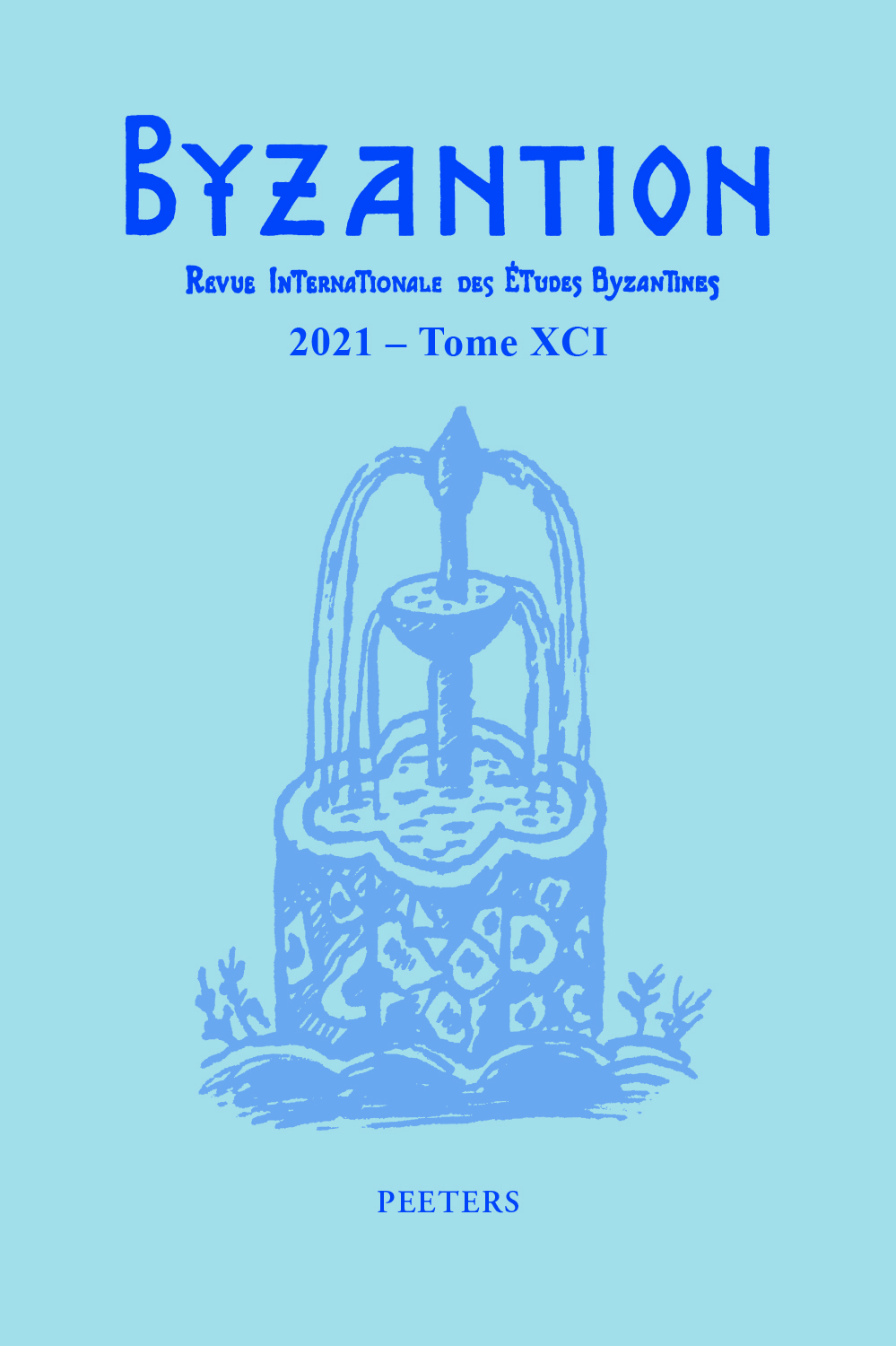 previous article in this issue previous article in this issue | next article in this issue  |

|
Document Details : Title: Les Sacra Parallela nettement antérieurs à Jean Damascène Subtitle: Retour à la datation de Michel Le Quien Author(s): DECLERCK, José Journal: Byzantion Volume: 85 Date: 2015 Pages: 27-65 DOI: 10.2143/BYZ.85.0.3117797 Abstract : Preparing his edition of the Opera omnia of John of Damascus (Paris, 1712), Michel Le Quien came upon two greatly diverging versions of the Sacra Parallela: the Vaticana Parallela and the Rupefucaldina Parallela. He rejected the latter, because two small texts, designed as σπόλια but in fact part of the compilation, contained a clear allusion to the occupation of Jerusalem by the Persians in 614 and incriminated the circus factions, designed by the neologism ‘Blue-or-Greens’. As they were contemporary with the events, these texts jeopardised the widely accepted attribution of the Sacra to John of Damascus. Therefore, Le Quien concluded that the Rupefucaldina Parallela had to be an older collection, which had been attributed deceitfully to the Damascene at a later stage. Similarly, scholars as Fr. Loofs and K. Holl refused to take the information of the scholia at face value. However, new inquiry in the tradition of the Sacra shows that the two texts do not feature exclusively in the Rupefucaldina Parallela, but go back at least as far as the hyparchetype of the second revision of the second book, which makes their presence significant for the whole compilation. Additional material, pointing to a date in the first quarter of the seventh century, is found in other scholia and in some of the subjects covered by the compiler: Jews persecuting Christians, appeals to continue the war (allegedly against the Persians), how an emperor should not lead his troops himself – Heraclius was the first since long to break with this habit –, considerations on the relationship between leaders and their subjects, a plea for paying the public taxes (not very likely under Persian or Muslim rule), why children of usurpers should not be put to death – this is possibly a reminder of what happened to emperor Maurice’s family –, and the accuracy of measures, weights and balances (an objective pursued simultaneously by Heraclius and John the Almsgiver). Some evidence suggests that the compiler of the Sacra (whoever he might have been) is to be linked to Palestine – he cites a few unidentified lines attributed to Maximus the Confessor –, and more specifically to the Laura of S. Sabas in the Judean desert, for its library holds a copy of Antipater of Bostra’s lost treatise against Origen, large parts of which are cited in the Sacra. |
|
